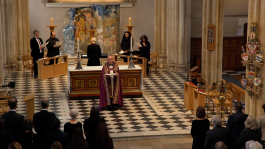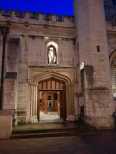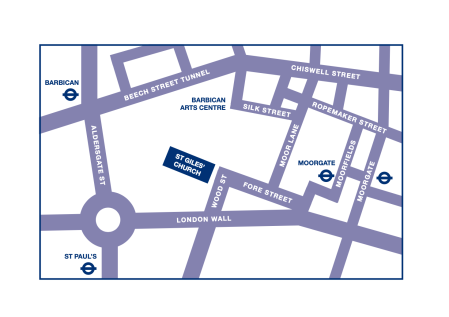Funerals & Memorials
Funerals
Parish funerals take place either in St Giles' or at a crematorium.
Practical arrangements are made by the undertaker who will manage all fees. Services are arranged in consultation with the Rector.
You may wish for the funeral to be conducted in the context of the Eucharist, or to be a service of hymns, readings and prayers.
Families should be aware that it takes an hour to get to the nearest cremaorium.We can advise you on the different arrangements you can make when a church service is followed by a private committal at the crematorium.
Music is arranged by the Director of Music.There is a professional choir of four voices.
We are happy for receptions after the service to be held at the back of the church.
Memorial Services
Generally a memorial service takes place several weeks after the funeral. Sometimes a memorial service is referred to as a service of thanksgiving. Usually the deceased had a connection either with the church or this part of London.
The Rector and Director of Music are involved in the planning of the service.
All Souls' Service
A very popular service, the Commemoration of All Souls Eucharist is kept on the Sunday nearest 2 November at 16.00.There is music and readings, prayers, Holy Communion and the lighting of candles by members of the congregation; the names of the dead are read out and silence kept. People find it very moving and beautiful and make a point of coming back each year.
The Columbarium
The Columbarium is known as 'one of London's secret gardens.' It lies to the east of the church down a flight of stairs. There are some niches on an outside wall and others are in a covered area enclosed by a gate. We have many requests for the placing of ashes here, but because of the limited space, only the ashes of those who were worshipping members of the congregation or who lived within the parish at time of death are placed there.
"I am the resurrection and the life", says the Lord.
"Those who believe in me, even though they die, will live".
Saint John 11.25,26






